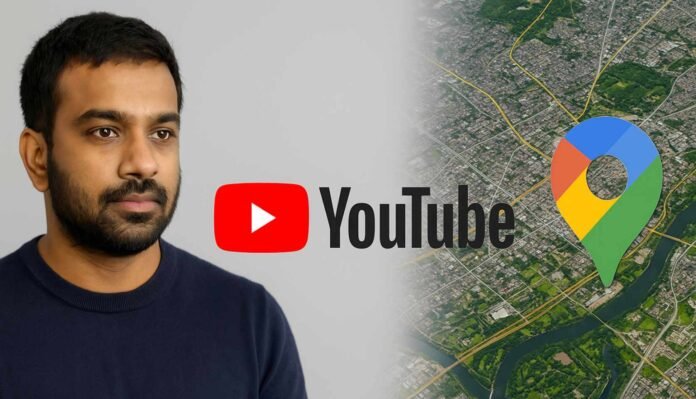- Perplexity CEO Aravind Srinivas said YouTube and Google Maps are nearly impossible to beat.
- He explained they are “networks” powered by data, creators, and user interactions.
- Srinivas said other Google services could still face competition.
- MapmyIndia responded, highlighting its detailed local mapping and inviting Perplexity to collaborate.
Aravind Srinivas, CEO of Perplexity AI, has stirred a major discussion about Google’s dominance in the tech world. Speaking on X, the social media platform formerly known as Twitter, Srinivas said that while some Google products can be challenged, others are almost unbeatable.
“YouTube and Maps are the hardest. Maybe even impossible. The rest are hard but doable,” he said in response to a user’s post showing Google’s popular app lineup, including Gmail, Drive, Chrome, and YouTube.
His remarks have reignited debate on how deeply Google’s products are embedded into daily life, and how difficult it is for any startup, even one backed by AI innovation, to dethrone them.
The Network Effect That Keeps YouTube and Maps on Top
Srinivas’s comments highlight a key truth in modern tech: YouTube and Google Maps are not just products. They are powerful networks, strengthened by user participation and data over many years.
Why YouTube is almost unbeatable
YouTube’s success is not only about videos. It’s about its vast creator network, billions of hours of content, and recommendation algorithms that keep users hooked. Every new video adds to a massive library that no competitor can easily match. The more people upload, the better the system becomes.
Platforms like Vimeo or Twitch have tried to challenge YouTube’s dominance, but none have achieved its scale or reach. YouTube’s ecosystem feeds itself, creators depend on it for income, and viewers rely on it for entertainment, education, and news.
Why Google Maps holds a unique advantage
Google Maps has spent decades collecting, refining, and verifying data. It uses satellite images, user feedback, GPS signals, and local business information to continuously improve accuracy. Every user interaction makes it smarter.
For a newcomer, replicating that level of detail and reliability would take enormous resources. Even major competitors struggle to match its integration across services like ride-hailing, food delivery, and logistics.
Both platforms thrive on network effects, the more people use them, the better they get, and the harder they are to replace.
What Perplexity and Others Can Still Challenge
Despite this, Srinivas believes not all of Google’s products are unshakable. Tools like Gmail, Drive, Photos, and Calendar could face growing competition from companies that focus on innovation and user experience.
Perplexity itself is one such contender. The startup positions itself as an AI-driven search engine designed to rethink how people find information online. “The internet is too important to be left in Google’s hands,” Srinivas said in another post.
In other words, while YouTube and Maps may be locked up by Google’s vast infrastructure, there is still room to innovate in how people search, browse, and organize their online lives.
India’s Push for Swadeshi Tech Alternatives
Srinivas’s remarks also come as India pushes for “Swadeshi” or Made-in-India digital platforms. The government has been encouraging the use of domestic apps as part of its digital independence initiative.
Local tech companies like Zoho and MapmyIndia are seeing a rise in popularity as they position themselves as credible homegrown alternatives.
MapmyIndia responds to the debate
After Srinivas called Maps one of the hardest products to beat, MapmyIndia, which operates the Mappls navigation platform, responded publicly. The company said it has been building detailed maps since 1995, offering house-level accuracy and India-specific features that even global tech giants struggle to provide.
MapmyIndia also invited Perplexity to collaborate, saying it already partners with Indian software company Zoho. The statement reflects a growing trend in India’s tech sector—collaboration over competition to build locally relevant, world-class digital ecosystems.
The Real Challenge for Startups
Srinivas’s honest take underscores how startups must be strategic about where to compete. Building the next YouTube or Maps might be unrealistic, but focusing on new categories or underserved areas could yield real opportunities.
YouTube and Google Maps stand as near-perfect examples of how scale, data, and user networks form nearly impenetrable moats. For startups like Perplexity, the goal isn’t to replace these giants entirely but to create new, smarter, and more transparent experiences for users who want an alternative to the old internet.
The discussion also mirrors India’s broader digital movement, a push for innovation that’s both local and global in ambition.
Follow TechBSB For More Updates

